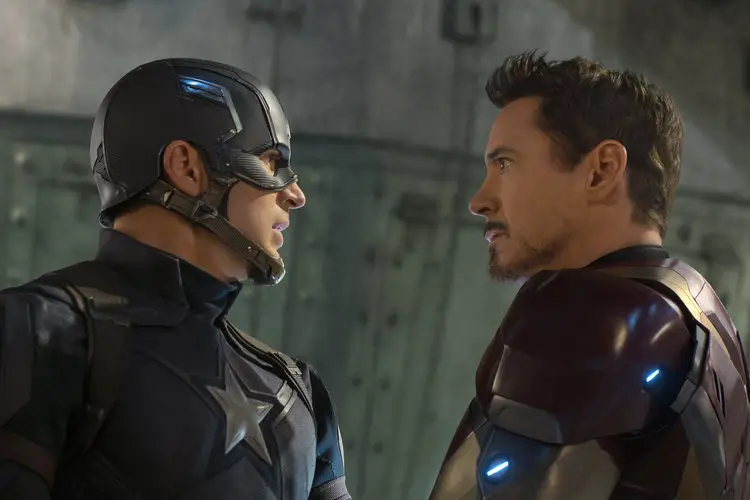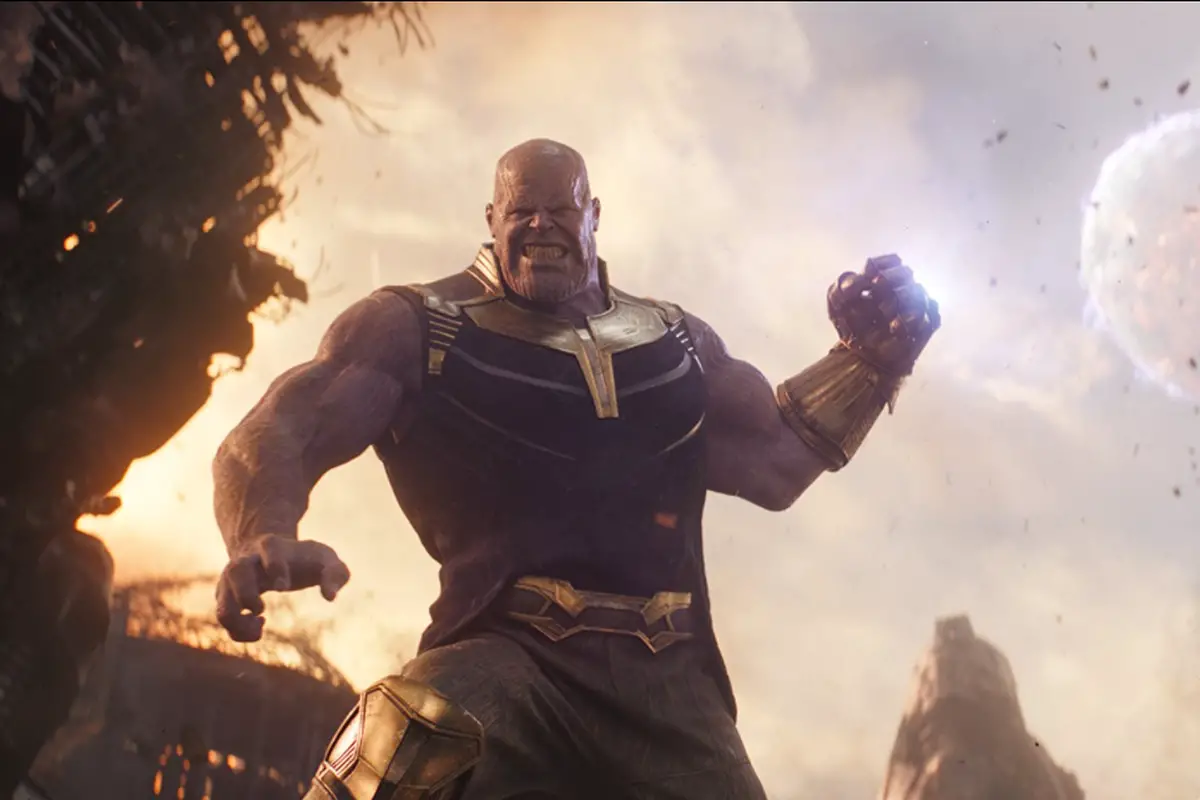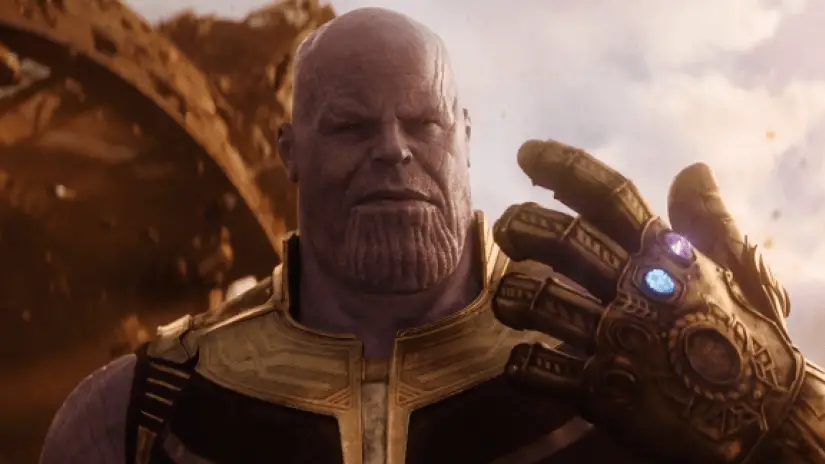After 10 years of buildup, 18 MCU movies and a hype campaign like no other, “Infinity War” has finally come out. It’s a movie of predictably unparalleled scale; dozens of superheroes are scattered in at least half a dozen storylines, across settings both old and new. As was also predicted, the movie has broken records, with the biggest box office opening of all time, and in the process surpassed “Justice League” — the latest blockbuster attempt from rival comic book company DC — after less than a week in theaters.
The movie itself is less conventional. As the culmination of a decade of storytelling, and as an adaptation of a particularly legendary moment in comic book history, the twists and turns feel natural, grounded as they are in Marvel lore. Yet “Infinity War” moves well away from the traditional structure of superhero movies, where there are clear heroes (however morally questionable) and clear villains (however sympathetic), and the former always triumphs over the latter. There are heroes in “Infinity War” — dozens of them. Thanos, however, isn’t the classic evil villain; he plays much more of an antihero role, despite his genocidal tendencies.
This isn’t the first time Marvel has toyed with moral ambiguity. The franchise has a large slate of stereotypically evil, “power for power’s sake” type villains, from Obidiah Stane in “Iron Man” to Hela in “Thor: Ragnarok.” Yet with each new release, the villains have become increasingly more nuanced, with Loki having won fans over since his first appearance, and villains like Killmonger in “Black Panther” and Vulture in “Spiderman: Homecoming” commanding the screen.

Thanos goes several steps further, providing the MCU with its most complex antagonist to date. Part of this complexity stems from the selflessness of Thanos’s goals. His ultimate plan, to wipe out half of all life in the universe, is completely and utterly monstrous. Thanos himself doesn’t ever try and refute this.
However, he makes it clear that he sees it as the better of two evils, the other of which is the extinction of all life through overpopulation. He’s not on his quest because he seeks power but because he sees it as his duty.
His sense of duty gives him a more heroic twist and parallels the ongoing debate between the members of the Avengers on what it means to be a hero. Like Thanos, the Avengers are motivated by duty. As Captain America says in the movie, “If I see a situation pointed south, I can’t ignore it.”
While the Avengers agree on this sentiment, they argue on how best to act on it. Tony Stark, otherwise known as Iron Man, constantly tries to solve problems before they develop and become an even bigger issue, which places him at odds with Captain America. With the moral division between Cap and Iron Man, the rest of the Avengers are forced to choose sides.
From Thanos’s perspective, he’s taking the same approach as Iron Man, only on a larger scale. He does what he does to fix issues with overpopulated societies before they collapse, taking active steps to prevent horrible situations from arising.

In his determination, Thanos places himself squarely on the side of the ends justifying the means, leading to the central thematic conflict of “Infinity War.” Although the Avengers often disagree on the right course of action, none of them are sympathetic to Thanos’s plans. Captain America firmly states, “We don’t trade lives,” with the Avengers taking every action they can to avoid sacrificing their own. Thanos has no such restrictions. He’s willing to sacrifice half the galaxy and even those close to him, though not without regret.
Typically, villains who are acting entirely for their own benefit have no scruples; their sacrifices are their choice. But because Thanos sees his path as one forced upon him by his unique knowledge of the problems facing the universe, he comes to regret his actions, which takes a toll on him.
Thanos also doesn’t possess the senseless cruelty found in most villains. He kills only when necessary, or when someone poses a particularly dangerous threat to his success. Otherwise he uses only as much force as necessary to accomplish his goals, something more generally reserved for heroes.
The structure of the movie also puts him in a semi-heroic position.
At first, the plot seems simple: Thanos wants to gather the Infinity Stones and wipe out half the universe while the heroes want to stop him. But the story is driven more by the actions of the heroes, not the villain; one group is trying to ambush Thanos, another is trying to forge a weapon that can kill him and a third is trying to destroy one of the Infinity Stones so he can’t assemble the full set. Thanos is in a race against time to collect the stones before the Avengers, a race in which he succeeds at the last possible moment more than once.

His ultimate success is the final element which makes him more of an antihero than villain. Stories where the villains triumph aren’t unheard of, even in the MCU. “Civil War” did this, to some extent. But the scale and impact of Thanos’s victory puts him in a league of his own.
With a snap of his fingers he wipes out half the universe, including around half of the heroes. The movie ends with the surviving heroes devastated and Thanos in retirement, watching the sun rise on a quiet farm, having achieved everything he desired. The fact that the villain wins in the end reverses the typical superhero formula where the good guys always come out on top.
All this is not to say that Thanos is right. As other characters point out, he is genocidal and insane. But the altruistic nature behind Thanos’s plans are arguably what make him a hero. “Infinity War” raises questions about what it means to be a hero, and for this reason, it is just as much Thanos’s story as it is the Avengers.


















good